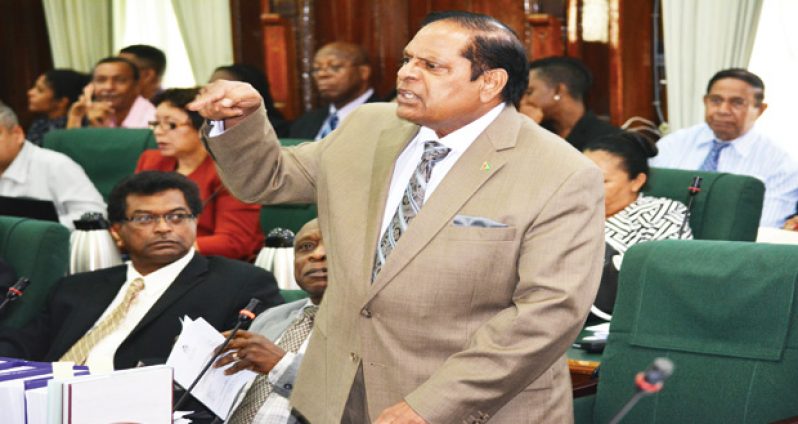AHEAD of the presentation of the 2016 national budget, the National Assembly yesterday approved some $7.8 billion for what are described as constitutional agencies. These agencies have been delinked from the normal budgetary allocations which were controlled by the Minister of Finance.Among those constitutional agencies are the Parliament Office, the Supreme Court, the Office of the Director of Public Prosecution, and the Audit Office. The Rights Commissions is also included.
Even though the Constitution has been amended in 2001 to extend independence to these agencies to prevent government from regulating their finances, the former PPP Government never changed the process to ensure that these agencies were not forced to beg for finances.
The AFC+APNU coalition, when in Opposition, piloted amendments to the Constitution to add these agencies to the list of bodies that should get lump sum allocations.
In 2013, APNU’s Carl Greenidge tabled a bill to add the agencies to a list for which monies should be given without direction from the Government. The PPP voted against the move, and President Ramotar refused to give assent to the bill.
Last night, when Opposition Leader Bharrat Jagdeo accused the coalition of interfering with the independence of the constitutional agencies, it attracted strong rebuttal from Vice Presidents Carl Greenidge and Khemraj Ramjattan.
Prime Minister Moses Nagamootoo accused the Opposition of hypocrisy and shedding crocodile tears when they voted against the autonomy of these agencies. The Coalition speakers were at pains to repeat that, on every agency, there was an increase over and above what was voted in 2015. There were no “cuts”, the PM said, and the Opposition was seeking to sow mischief.
This was the first time that the 15 agencies were given lump sums, and each agency has to account for how their respective amount is spent.
This was done to remove ruling politicians from using monies to influence the critical agencies.



.jpg)








